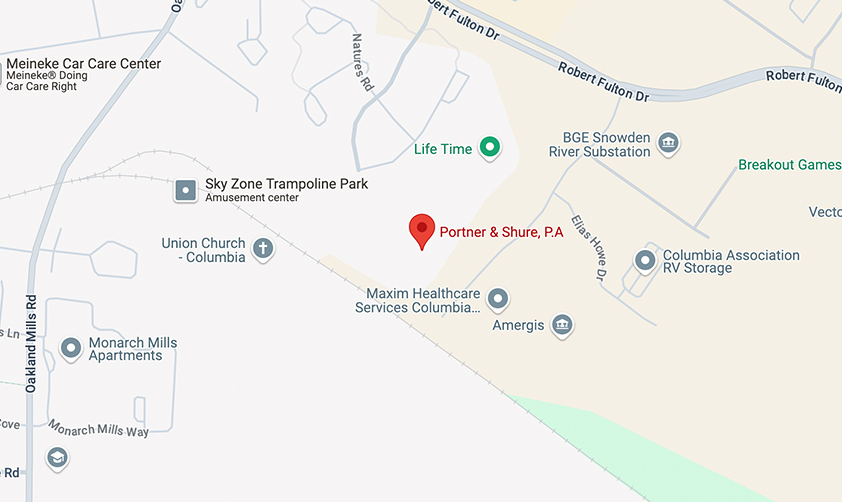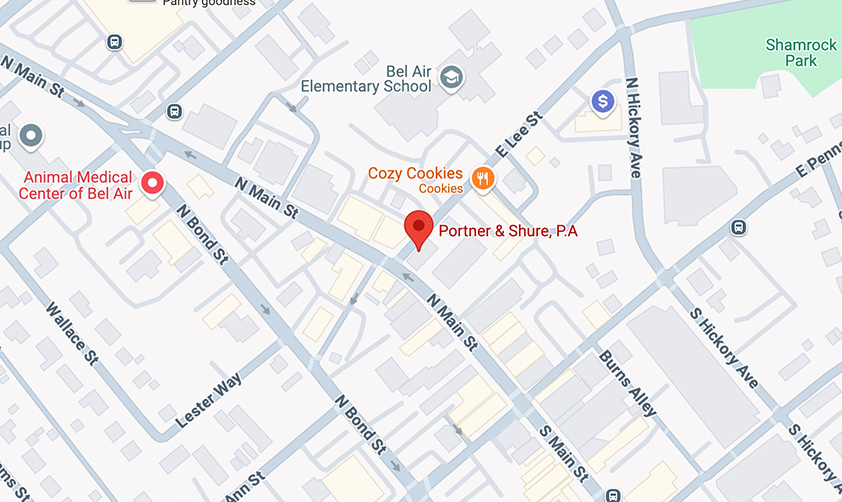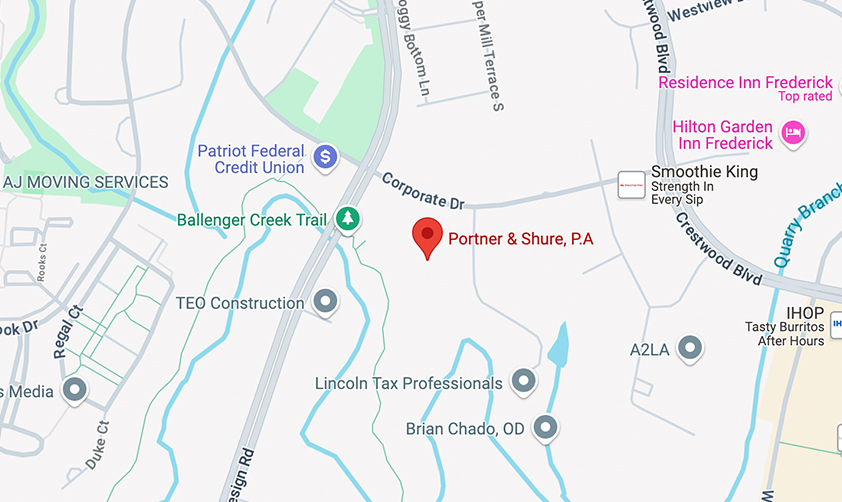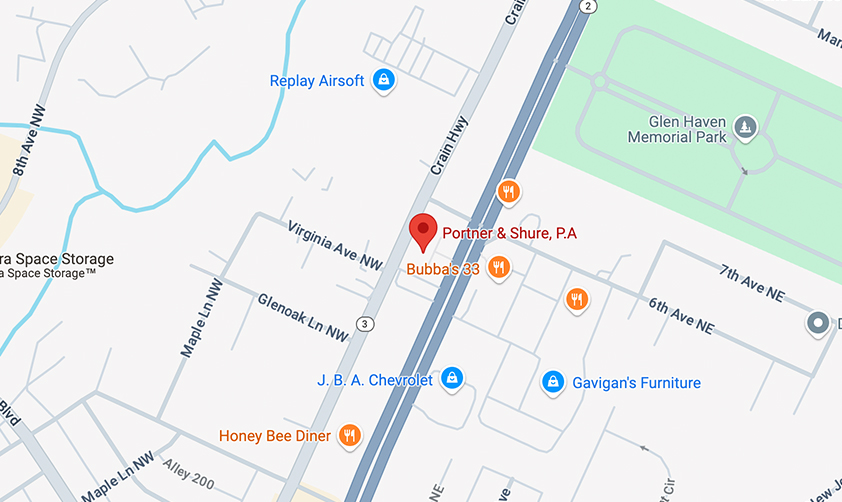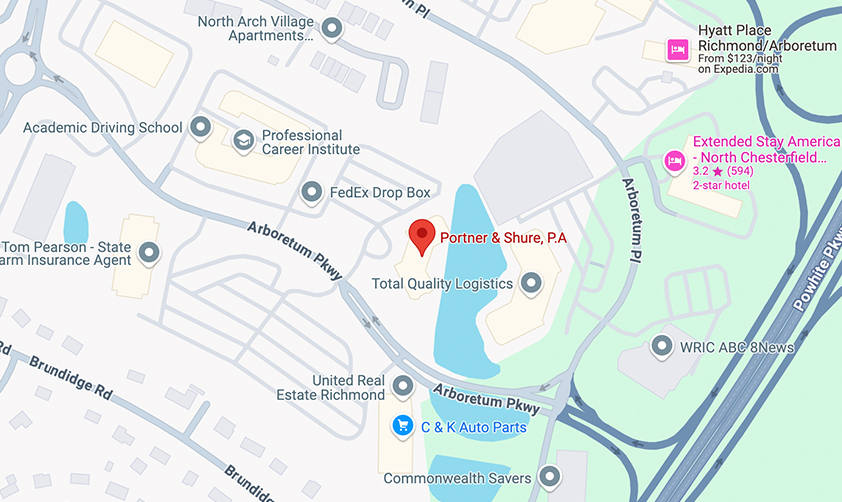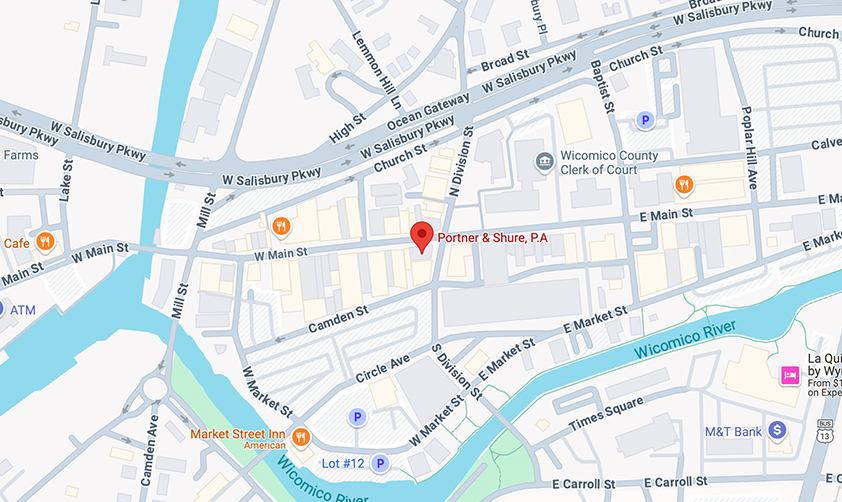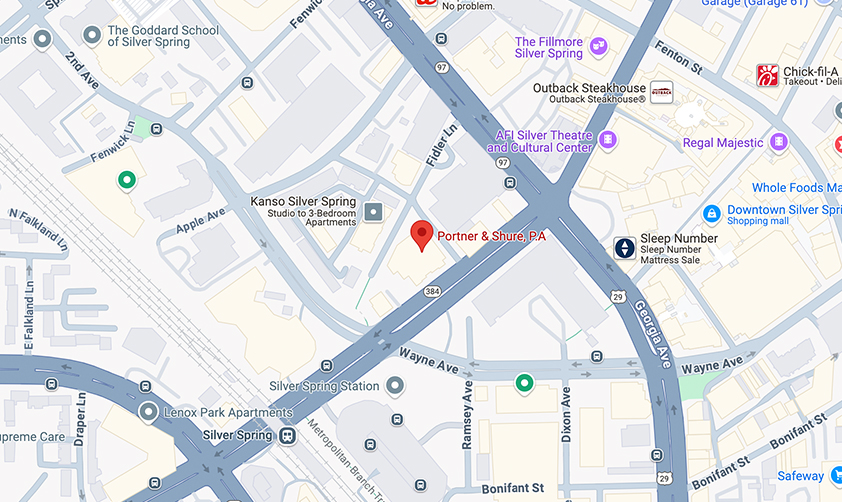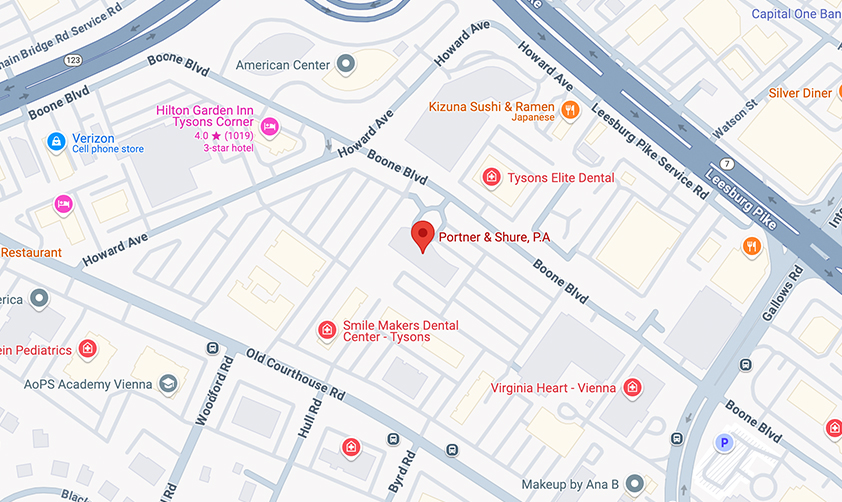Menu
Book a Free Consultation
(410) 995-1515Available 24/7 Free Consultation
(410) 995-1515
People who work hard to support themselves and their families deserve the peace of mind that comes with knowing they’re protected if they’re injured on the job. Workers’ compensation exists to provide that safety net, covering medical expenses and lost wages for employees who suffer work-related injuries or illnesses. However, not every injury is automatically covered, and understanding the nuances of workers’ compensation laws in Maryland, Virginia, Washington, D.C., and North Carolina is essential to ensuring you receive the benefits you’re entitled to. Knowing what types of injuries may not qualify can help you avoid unnecessary setbacks and focus on your recovery.
At Portner & Shure, P.A., we believe that no one should have to navigate the complexities of workers’ compensation alone. Our experienced attorneys are here to provide the legal guidance you need to understand your claim, determine your eligibility, and fight for the benefits you deserve. With decades of experience and a proven track record of success, we’re committed to helping hardworking individuals like you protect their rights and secure the financial support they need after a workplace injury. If you’re unsure about your situation or have questions about your claim, contact Portner & Shure, P.A. today for personalized advice and dedicated representation for the best outcome possible.
Workers’ compensation is a vital safety net for employees who are injured or become ill as a direct result of their job. It is designed to provide financial and medical support to help workers recover without the added stress of lost income or mounting medical bills. To qualify for workers’ compensation, the injury or illness must arise out of and occur in the course of employment. This means the incident must be directly related to your job duties and happen while you are performing work-related tasks.
Here’s what workers’ compensation typically covers:
Workers’ compensation is essential because it provides a lifeline for employees and their families during difficult times. It ensures that workers can focus on their recovery without worrying about how they’ll pay their bills or access necessary medical care.
While workers’ compensation is designed to cover most work-related injuries, there are specific scenarios where it may not apply. These exceptions typically arise when the injury is not directly tied to the scope of employment or when the employee’s actions fall outside the protections of workers’ compensation laws. Understanding these situations can help you determine whether your claim is valid and avoid potential denials. In many cases, these exclusions are based on the idea that the injury did not occur while performing job-related duties or was caused by behavior that violates workplace policies or laws.
Here are some common scenarios where workers’ compensation may not apply:
These exclusions highlight the importance of understanding the circumstances surrounding your injury and how they align with workers’ compensation laws. If you’re unsure whether your situation qualifies, consulting with an experienced workers’ compensation attorney can help clarify your eligibility and ensure you’re pursuing the right course of action.
Intentional injuries caused by a third party, such as assaults at work, can present unique nuances when it comes to workers’ compensation coverage. Generally, workers’ compensation will cover injuries resulting from an assault if the incident arises out of and occurs in the course of employment. For example, if the assault is related to your job duties—such as a customer attacking a retail worker or a coworker dispute escalating into violence—it is likely to be covered. However, if the assault is purely personal and unrelated to the workplace, such as a dispute over a non-work-related matter, it may not qualify for workers’ compensation benefits. In cases where a third party is responsible, you may also have the option to pursue a separate personal injury claim against the individual, in addition to receiving workers’ compensation benefits.
Even if you believe workers’ compensation should cover your workplace injury, there are several reasons why your claim might be denied. Workers’ compensation claims are subject to strict rules and requirements, and even small missteps can lead to a denial. Employers and insurance companies often scrutinize claims to minimize payouts, which means any gaps in your documentation or reporting could work against you. Understanding the common reasons for claim denials can help you avoid these pitfalls and strengthen your case.
Here are some of the most common reasons workers’ compensation claims are denied:
A denied claim doesn’t necessarily mean the end of the road. If your claim is denied, you have the right to appeal the decision and present additional evidence to support your case. Consulting with an experienced workers’ compensation attorney can help you identify the reasons for the denial, address any gaps in your claim, and fight for the benefits you deserve.
If your workers’ compensation claim is denied, it’s important not to give up—appealing the denial is a critical step in fighting for the benefits you deserve. Many claims are denied due to technicalities, incomplete documentation, or disputes over the cause of the injury, but these issues can often be resolved with the right approach. The appeals process allows you to present additional evidence, clarify misunderstandings, and make your case for why your injury should be covered.
Here’s what to do if your claim is denied:
Appealing a denial can feel like an uphill battle, but it’s an opportunity to ensure your voice is heard and your compensation is protected.
At Portner & Shure, P.A., our trial attorneys understand the intricacies of workers’ compensation laws in Maryland, Virginia, Washington, D.C., and North Carolina. Each state has its own unique regulations governing what injuries are covered, how claims must be filed, and the benefits you’re entitled to receive. Our team is here to help you navigate these state-specific rules, ensuring that your claim is filed correctly and that no detail is overlooked.
When you work with Portner & Shure, P.A., you’re not just hiring an attorney—you’re gaining a dedicated advocate who will fight tirelessly for your financial security. With decades of experience and a proven track record of success, our trial attorneys know how to stand up to insurance companies and employers who try to minimize or deny your claim. We’re committed to ensuring you receive the full range of benefits you’re entitled to, from medical coverage to wage replacement and beyond. Contact us today to discuss your worker’s compensation claim.


Expect More with
Portner & Shure
The legal system can be intimidating, but you deserve more. Expect more guidance, more dedication, and more results from our experienced trial attorneys every step of the way.


